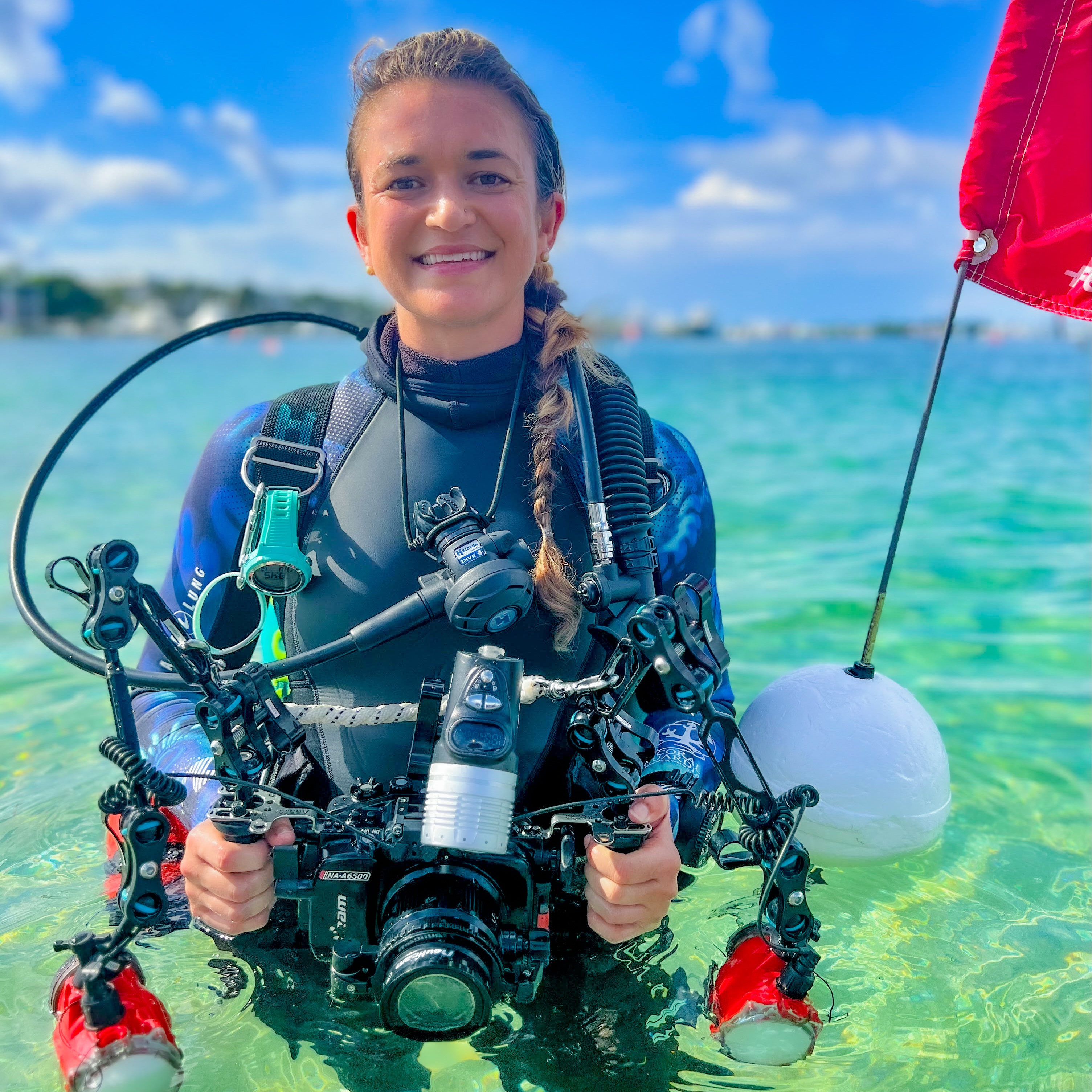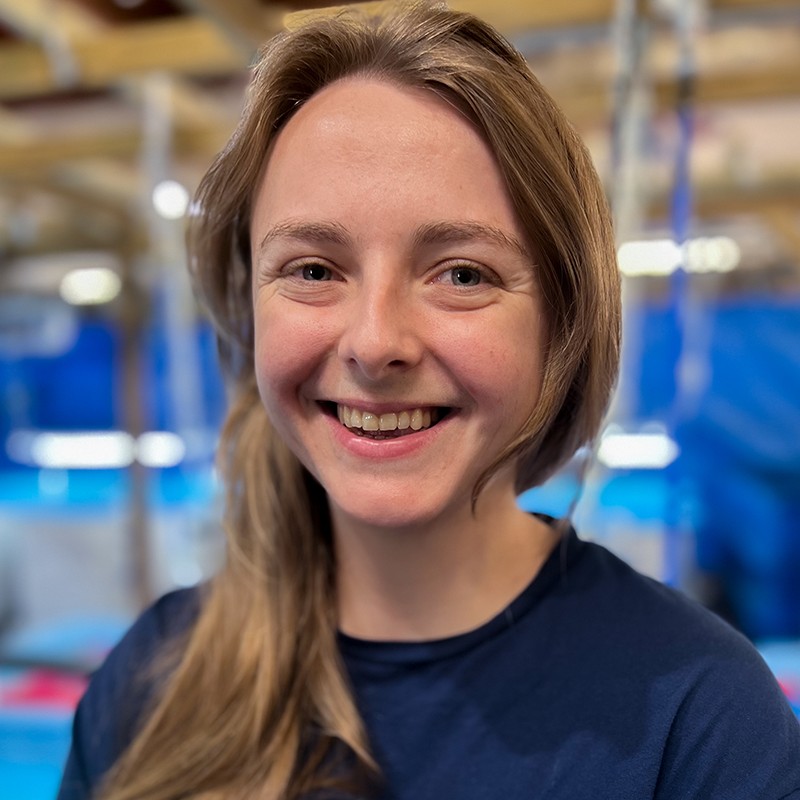About This Project
Octopuses have color changing skin, which is important for camouflage, communication, and species identification. Yet, many octopus species have similar color patterns and live in the same areas, making them hard to identify. These similar looking yet genetically different species are called cryptic species. I'm unraveling the DNA of a cryptic octopus in Florida to reveal its identity- Octopus vulgaris or Octopus americanus. This work has implications for documenting marine biodiversity.
Ask the Scientists
Join The DiscussionWhat is the context of this research?
Octopus vulgaris was long considered a global, cosmopolitan species. Yet, scientists questioned this classification since geographical barriers between populations prevented them from sharing genes (1). Molecular tools have allowed scientists to ask: O. vulgaris: cosmopolitan or complex? Through genetics, O. vuglaris has been discovered to represent several species comprising a hard-to-discern cryptic species group called the O. vulgaris Species Complex (2)! It doesn’t stop there- A recent study proposed to reinstate the name of the western Atlantic O. vulgaris to O. americanus (3). There's just one caveat; Florida’s O. vulgaris has never undergone genetic study! This project uses genetics to determine if this name change is appropriate for Florida’s Octopus.
What is the significance of this project?
It is very difficult to tell cryptic octopus species apart, which leads to octopuses being widely misidentified. This will be the first study to genetically identify this cryptic species in Florida. The findings will be compared to other genetic reports of the same species to determine an accurate geographic range. Knowing what species inhabit certain coastlines and environments is important for biodiversity and population dynamics. Octopuses play a crucial role as “the middle guy” in many marine food webs, keeping food webs in balance. Once we know who’s who in the octopus world, we can start accurately identifying what resources (habitat and food) are needed for species conservation and answering evolutionary biology questions. Did you know cephalopods are older than dinosaurs?
What are the goals of the project?
This project is using genetic sequencing to identify the cryptic octopus species in Florida. Previously, a specific set of genes (16S & COI) were used to identify animal species- similar to having a unique fingerprint. However, these genes could yield conflicting results for cryptic octopus species. In case of this, my project will use both the 16S & COI genes, and an understudied gene (Rho) to identify this cryptic species. The information from these genes will be input into computational software to construct phylogenetic trees- like a family tree you may build with your siblings and cousins. These trees will reveal the identity of Florida's Octopus and its relationship to other octopuses. If we fund our stretch goal, we can sequence its full genome, opening doors for more research!
Budget
Since cryptic species are differentiated by their DNA, genetic sequencing is the most powerful way to identify them. To do this, a series of science solutions is used to purify the DNA and amplify our DNA regions of interest. Once the DNA is prepped, it’s then loaded into the sequencing machine. From here, the sequence data are further used to investigate significant differences between species that otherwise may look nearly identical.
Stretch goal $5,000
If we fund our stretch goal, we can sequence the full genome-unraveling more octopus secrets! This opens doors to understand the evolutionary biology of octopuses and their relatives (squid, cuttlefish, and nautilus) and annotate the genome to understand what genes are responsible for development, vision, learning, and camouflage.
Endorsed by
 Project Timeline
Project Timeline
In Spring 2023, common octopuses were sampled from Florida's Lake Worth Lagoon. This summer (2024), I will be capturing DNA from octopus tissue. After it is sequenced, I will use powerful computer programs to build phylogenetic "family trees." In Fall 2024, I will write up my project results for my master's thesis and future journal publication.
Aug 01, 2023
Octopuses sampled from South Florida
May 07, 2024
Project Launched
Aug 31, 2024
Extract and sequence octopus DNA
Sep 15, 2024
Build "family" trees
Nov 30, 2024
Complete the project and write up the results
Meet the Team
Colleen Hecker
I am a master's student at Florida Atlantic Univeristy interested in using DNA to answer questions about the marine environment. Outside of my research role, I am also a teaching assistant for a class called Marine Biology Field Studies and Laboratory and a scientific communicator in the university's Marine Science Lab. I'm a busy bee, but I still find time for my hobbies, which are SCUBA diving, caring for my freshwater aquariums, and walking on the beach.
Lab Notes
Nothing posted yet.
Additional Information
We want to shout these results loud and proud! These results will not only be published in a peer-reviewed scientific journal, but will also be shared with science lovers of all ages near and far at science outreach events, ocean conservation festivals, and educational blogs through the FAU Marine Lab, OctoNation (educational non-profit dedicated to inspiring wonder of the ocean by educating about octopuses), and more!
Project Backers
- 15Backers
- 17%Funded
- $510Total Donations
- $34.00Average Donation


